
Considering how molten Venus's surface was in its past, how might it have formed a liquid water ocean?
When we think about the evolution of planets, we envision them beginning their life in a hot and molten state, and as they evolve through time, they emit radiation into space and cool down. So, the key question is whether or not by cooling down, Venus was able to condense the water it had in its atmosphere onto the surface. If the water did not condense, then it is unlikely that liquid water oceans would have formed. The current thinking is liquid water oceans might have formed from steam at an early point during Venus's evolution, the steam condensing on the planet's surface and turning from a vapour to a liquid. This is probably what also happened on Earth in its past.
What methods were used to find this out?
هذه القصة مأخوذة من طبعة May 2022 من BBC Sky at Night Magazine.
ابدأ النسخة التجريبية المجانية من Magzter GOLD لمدة 7 أيام للوصول إلى آلاف القصص المتميزة المنسقة وأكثر من 9,000 مجلة وصحيفة.
بالفعل مشترك ? تسجيل الدخول
هذه القصة مأخوذة من طبعة May 2022 من BBC Sky at Night Magazine.
ابدأ النسخة التجريبية المجانية من Magzter GOLD لمدة 7 أيام للوصول إلى آلاف القصص المتميزة المنسقة وأكثر من 9,000 مجلة وصحيفة.
بالفعل مشترك? تسجيل الدخول
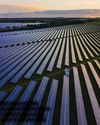
Could We Find Aliens by Looking for Their Solar Panels?- Designed to reflect ultraviolet and infrared, the panels have a unique fingerprint
Researchers searching for life beyond Earth spend a lot of time thinking about what telltale signs might be detectable astronomically. Forms of unambiguous evidence for the presence of life on another world are known as biosignatures. By extension, techno signatures are indicators of activity by intelligent, civilisation-building life.

Antimatter- In our continuing series, Govert Schilling looks at antimatter, the strange counterpart to most of the matter filling our Universe
Particles and corresponding antiparticles are very much alike, except they have opposite electrical charges. For instance, the antiparticle of the electron - known as the positron - has the same tiny mass, but while electrons carry a negative electrical charge, positrons are positively charged.
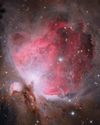
Where Have All The Milky Way's Early Stars Gone?- Our Galaxy has a curious lack of pristine stars
The Big Bang produced a Universe filled almost exclusively with hydrogen and helium; all other elements - what astronomers call metals - were produced by stars, supernovae and everything that happens later. So if you can pick out a pristine star with no metals polluting it from among the billions in the Milky Way, then you are likely to have a star dating from our Galaxy's earliest days.
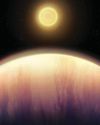
Inside The Sky At Night - Two years ago, exoplanet scientist Hannah Wakeford received some of the first data from the JWST
Two years ago, exoplanet scientist Hannah Wakeford received some of the first data from the JWST. In July's Sky at Night, we discovered what she's learned since then.
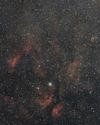
How to stack DSLR data in Siril
Easily combine multiple frames to boost detailin your astro photos

Lunar occultation of Saturn
You'll need to strike a balance on 21 August to capture the Moon covering the ringed planet
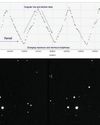
How to plot a variable star light curve
A rewarding project to chart stars that change brightness
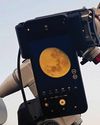
Smartphone photography with a telescope
Mary Mcintyre explains how to get impressive night-sky images using your phone
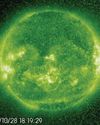
Once-a-century solar storm is overdue
If a Carrington Event struck today it would be catastrophic, says Minna Palmroth
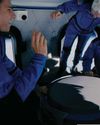
The new era of human spaceflight
There's been a step-change in crewed space missions since the dawn of the 21st century. Ben Evans charts its course and looks ahead to future horizons